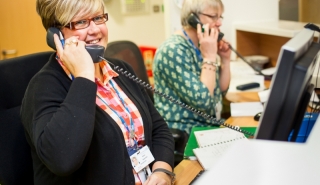Laboratory Medicine
Test Directory / Platelet glycoprotein (platelet function)
Platelet glycoprotein (platelet function)
Citrated Plasma
| Test | Platelet glycoprotein (platelet function) |
|---|---|
| Common Abbreviations | PGPS |
| Profile | Platelet Function Investigation PFA-100, platelt aggregration, platelet glycoproteins,platelet nucleotides |
| Clinical Indication | An evaluation of patients with abnormal bleeding requires objective clinical asssessment of bleeding, history, family history and physicalexamination. After initial lab invesitgatin, further testing, such as specific bleeding disorder tests may be necessary to identify an inherited disorder or acquired condition as the cause of the dysfunction. Platelet glycoprotein tests the quantity of glycoprotein receptor density in the diagnosis of defects. |
| Specimen Type | Blood |
| Sample Type | Citrated Plasma |
| Minimum Volume | 1 x 3mL (adult) 1 x 1mL (paed) (Platelet fucntion Investigation requires: 5 x 3mL (adult), 6 x 1mL (paed) (citrated plasma must be filled to bottle line) |
| Special Precautions | Please discuss with Consultant Haematologists in the first instance. Must be prearranged with Haemophilia Nurse prior to appointment and samples taken. Hand delivery to the Coagulation Lab before 10am |
| Stability | 4 hrs (unspun) |
| Turnaround Time | 2-3 days (Full platelet function investigation report available 28 days) |
| Laboratory | SLM Haematology Laboratory Leeds St James University Hospital |
| Reference Interval | Issued with final report |
| Limitations | By prearrangement only. Must be delivered to testing lab by 11am on day of collection. Samples must not be sent by air tube. |
| Additional Information |






